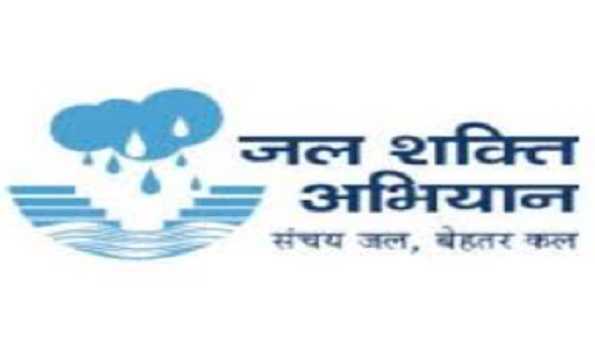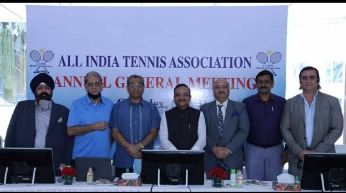New Delhi, Oct 4 (UNI) It’s a typical busy morning for Ms Kulwinder Kaur Brar, a village Sarpanch from Memha Bhagwana village in Bathinda district of Punjab who has transformed her village with community’s participation, hurriedly wraps up household chores, her focus is on the meetings ahead as her day will be hectic as she meets with stakeholders, Government officials, corporates, NRIs and most importantly with her own team.
Since childhood, Kulwinder has seen village women suffering due to paucity of potable water in the village. Kulwinder was resolute to change their plight, and soon after becoming Sarpanch of the village, she started working towards the cause but with a smarter approach.
Her idea and intent were superb, but to kickstart them, huge funds were required. With the launch of Jal Jeevan Mission, things were much more streamlined and soon the piped water scheme for providing water in every rural household was sanctioned for Mehma village.
To take the mission further, the Village Water and Sanitation Committee (VWSC) members went house-to-house explaining how piped water supply will not only save time and energy but will also provide clean drinking water of prescribed quality. The details of the scheme were informed where in 10 percent capital expenditure required to be contributed for in-village infrastructure.
Families were encouraged to contribute and get a tap connection so that they get more time during the day for productive works. Most people agreed to pay the money towards the installation of the water connection as availability of water was a serious concern.
But there were few households in the village who could not afford the contribution, therefore, the Gram Panchayat took the decision to waive off their charges. The expenditure towards their household tap connections were taken up by the Panchayat.
Today, for any new water tap connection the VWSC charges Rs 500 from the general household and Rs 250 from that belonging to scheduled castes.
The next milestone was to regularly take up water issue in Panchayat meetings. Patriarchy was the main hurdle in implementing this idea. Although Ms Kulwinder lead the Gram Panchayat as a Sarpanch but there were very few women who actually attended the Gram Sabha but with her efforts she mobilized the women of the village and today, nearly 80 percent women attend the Gram Sabha and share their concerns. Seeing a woman at the helm of affairs instills confidence in women who are more participative and are willing to take leadership roles.
Jal Jeevan Mission’s IEC Campaign was a great help in steering the community. Role of women and their importance in water management was part of the campaign. In order to carry out regular awareness, an all women Village Water & Sanitation Committee was formed in the village since the women in the village believe that it’s the women who run the house, hence, they can manage water better.
Thanks to Jal Jeevan Mission (JJM)! A silent revolution is happening in villages. The piped water connection has completely changed the lives of women. They are saved from the drudgery of fetching water. With a tap at home, women have more spare time in their lives. Another visible change is that the dropout rate has reduced since piped water connection has reached the village. A number of adolescents have re-enrolled in the schools.
A five-member committee has been formed in the Panchayat which periodically tests the water source and household tap connection to assess the purity and standard of water supplied in the village. While skilled masons, electricians and plumbers are available in the village for various works related to drinking water supply, now women are also being trained to carry out minor repair works and maintain the existing infrastructure.
Today Mehma Bhagwana village is a perfect example of community participation and mobilization to own the JJM scheme where the village has 100 percent functional household water connection and running it successfully for a population of 1,484 people, which can be emulated by other villages.
But for Kulwinder Kaur, the journey has just begun, as she now plans to work towards grey water management and installation of solar lights in the village. Under her leadership, she has other plans to see women from her village be economically independent through the umbrella of Self Help Groups.She says, ‘’I will ensure that these women from the village should take up some gainful economic activity to be financially independent and contribute to the family kitty.’’
Thus Kulvinder Kaur is on the move to make Jal Jeevan Mission a people’s movement.














